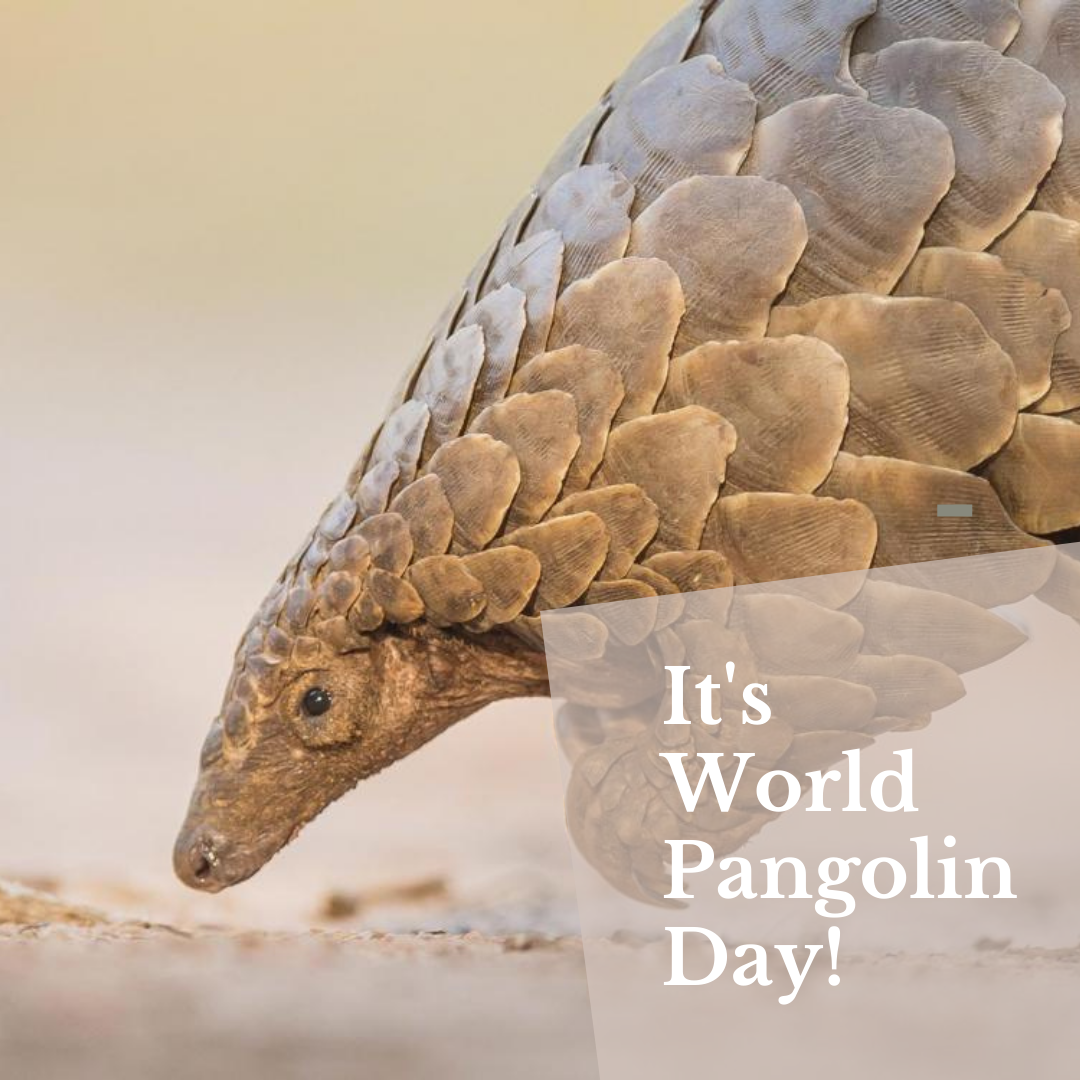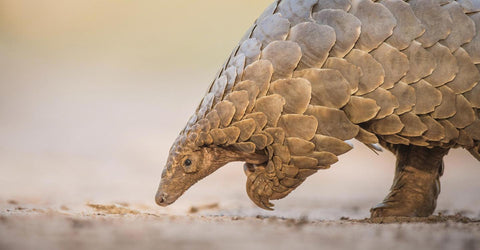✨ Support Small, Shine Big! ✨
💌 40% off with code BLOOMS40 on She Loves Blooms Jewellery 🌈
🛍️ Free AUS SHIPPING OVER $160🌻

Did you know today is World Pangolin Day?
The unique, shy and harmless pangolin is the highest-trafficked non-human mammal globally. Pangolins are killed for their scales used for medicine and meat, a delicacy among the wealthy in China and Vietnam. There is also a demand for Pangolin products in the United States for their leather in boots, bags and belts.
Pangolins are closely related to bears, dogs and cats though they act like anteaters and armadillos. They’re solitary and primarily nocturnal. Most live on the ground, but some are known to climb trees. They’re insectivorous and feed on termites, ants and larvae.
 Image credit: African Wildlife Foundation
Image credit: African Wildlife Foundation
There are eight species of the Pangolin. Four species are found in Africa: Ground Pangolin, Giant Pangolin, White-bellied, Black-bellied, while species found in Asia are Chinese, Sunda, Indian and Philippine Pangolins. These species range from vulnerable to critically endangered.
In 2016 through International Trade in Endangered Species (CITIES), made up of 180 countries, voted to ban the commercial trade of Pangolins - this is one of their many efforts to fight illegal trade and restore the existence and survival of the Pangolins due to the rapid decline of its populations.
The pangolins stay together when they need to mate and bear a young one. The male remains in the den until the offspring is independent. Pangolins reproduce a single offspring in a year. The babies are born with soft scales and ride on their mother’s tails until they wean in three months. It takes babies two years to reach sexual maturity - meaning it takes Pangolins a more extended period to reproduce hence another considerable concern to their endangered status.
 Image credit: African Wildlife Foundation
Image credit: African Wildlife Foundation
Facts you didn’t know about Pangolin
They use the scales as weapons for self-defence. When threatened, they coil into a ball and release a stinky fluid from a gland at the base of their tails as a defence mechanism.
They depend on their gizzard stomach to grind food since they have no teeth.
The scales cover 20% of its body mass. They have up to 1,000 scales on their bodies.

Image credit: African Wildlife Foundation
It’s said its tongue is longer than its body - 16inches long. The tongue is used to reach for insects even those underground. The stinky saliva aids in holding insects on their tongues when hunting inside insect tunnels.
The pangolins are on the endangered status. International Union for Conservation of Nature (IUCN) was scaled to vulnerable after heightened levels of hunting and poaching. Pangolin’s scales are made of Keratin, a material present in fingernails, hair and horns. Their scales have not been scientifically proven to be of medicinal value. However, they’re used in traditional Chinese medication to treat ailments from arthritis to lactation. The scales are typically dried and pounded into a powder made into a pill.
Good news! In June 2020, China increased the protection of Chinese native Pangolin and prohibited its scales for medicinal purposes, which is a great win considering the 195,000 pangolins trafficked for scales in 2019.
 Image credit: Chris Buddah from Pinterest
Image credit: Chris Buddah from Pinterest
We hope more countries will step up to help protect Pangolins. We would also love for YOU to help us spread the word about Pangolins to your family and friends - will you?
She Loves Bloom Pangolin Brooch
Did you know Polly the Pangolin brooch was our first brooch? There is one last Pangolin brooch for sale at Azure Aster - SLB stockist.

Comments will be approved before showing up.